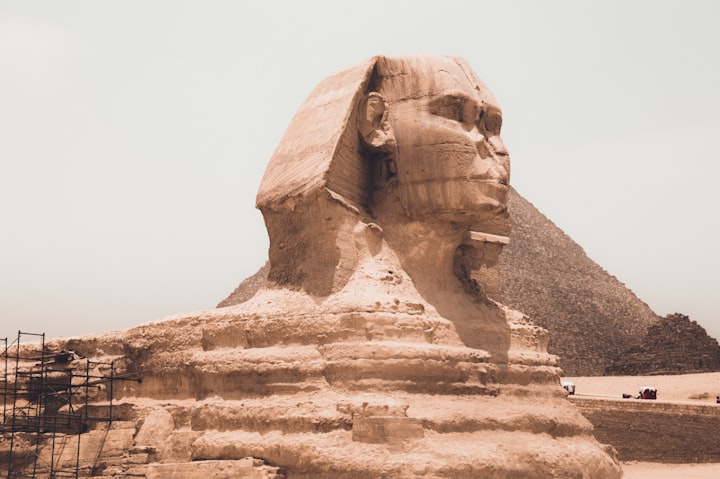
Introduction:
Egypt, the land of pharaohs, pyramids, and ancient mysteries, has a rich history spanning over millennia. From its early beginnings as one of the world's first organized civilizations along the Nile River to its subsequent rise and fall as a dominant global power, Egypt has experienced profound shifts in political, cultural, and economic influence. In this article, we explore the remarkable journey of Egypt as a world power, tracing its ascent, zenith, and eventual decline.
The Rise: Birth of a Civilization
Around 3100 BCE, the unification of Upper and Lower Egypt under the rule of Pharaoh Narmer marked the birth of one of history's earliest centralized states. This event set the stage for Egypt's rise as a significant power in the ancient world. The Nile River played a pivotal role in the development of Egyptian civilization, providing fertile land for agriculture, transportation routes, and a robust economy.
The Old Kingdom and Pyramids:
The Old Kingdom (2686-2181 BCE) witnessed Egypt's emergence as a dominant force. Rulers like Djoser and Sneferu initiated monumental architectural projects, including the iconic pyramids at Giza. These structures, not only tombs for the pharaohs but also symbols of the state's grandeur, demonstrated Egypt's mastery of engineering and served as a testament to its supremacy.
The Middle Kingdom and Cultural Flourishing:
Following a period of instability, Egypt experienced a resurgence during the Middle Kingdom (2055-1650 BCE). This era saw the development of strong central administration, significant social reforms, and an expansion of trade networks. Notably, the pharaohs of the Twelfth Dynasty implemented extensive irrigation projects, leading to agricultural prosperity and population growth. The arts and literature flourished, as evident in the exquisite funerary texts known as the Coffin Texts.
The New Kingdom and Empire:
The New Kingdom (1550-1069 BCE) marked the zenith of Egypt's power and influence. Ambitious pharaohs like Thutmose III and Ramses II expanded Egypt's borders, establishing an empire that stretched from Nubia in the south to modern-day Syria in the north. This era witnessed grand building projects, diplomatic marriages, and military conquests, solidifying Egypt's status as a formidable world power.
The Decline: Challenges and Shifting Tides
Despite its remarkable achievements, Egypt's reign as a world power eventually began to wane due to a combination of internal and external factors.
Invasion and Foreign Domination:
During the Late Period (664-332 BCE), Egypt faced numerous invasions from foreign powers, including the Persians, Greeks, and Romans. The conquest of Egypt by Alexander the Great in 332 BCE marked the end of native pharaonic rule. Subsequently, Egypt became a province of the vast Macedonian and later Roman empires, diminishing its autonomy and diminishing its standing as a global power.
Economic Decline and Cultural Shifts:
With the decline of its political sovereignty, Egypt also experienced economic stagnation. The shift of trade routes away from the Mediterranean and the decline of its agricultural productivity impacted its wealth and influence. Furthermore, the rise of Christianity and the later spread of Islam altered the religious and cultural landscape, transforming Egypt's identity and weakening its position as a global power.
Modern Era and Contemporary Challenges:
Egypt regained independence from foreign rule in the 20th century, but it faced numerous challenges in the modern era. Economic struggles, political instability, and conflicts have hindered its ability to reclaim its former glory. While Egypt remains an influential regional player due to its geopolitical position, historical landmarks, and cultural heritage, its status as a global power has diminished compared to its ancient past.
Conclusion:
The rise and fall of Egypt as a world power is a captivating tale of a civilization that emerged from the banks of the Nile to shape the course of human history. From the grandeur of the pyramids to the vast empire of the New Kingdom, Egypt's achievements were awe-inspiring and left an indelible mark on the world.
However, the decline of Egypt's global influence was a gradual process, influenced by external invasions, foreign domination, economic challenges, and cultural shifts. The loss of political sovereignty and the transformation of Egypt into a province of foreign empires marked a turning point in its trajectory as a global power.
Yet, Egypt's legacy endures. Its historical landmarks, ancient artifacts, and cultural heritage continue to captivate and inspire people worldwide. Egypt's contributions to art, architecture, literature, and science remain influential and remind us of its once-mighty status.
Today, while Egypt retains regional importance due to its strategic location, population, and cultural significance, its influence as a global power has diminished in comparison to its ancient past. Nonetheless, Egypt continues to navigate the complexities of the modern era, striving to build a prosperous and stable nation.
The story of Egypt's rise and fall serves as a reminder of the ebb and flow of civilizations throughout history. It is a testament to the impermanence of power and a reflection of the enduring legacy of human achievement. Egypt's journey as a world power will forever be a source of fascination, allowing us to glimpse the heights of greatness and the challenges that come with the passage of time.





Comments (1)
Hello, AI is permitted on Vocal. It is a Vocal policy that content created with AI is identified as such at the start of the story/article. Your article/story has many hallmarks of AI-assisted/generated content. You can find the details of the Vocal policy here: https://vocal.media/resources/an-update-from-vocal-on-ai-generated-content, Please amend your piece to be in compliance. If you are not a Vocal+ member you will need to contact Vocal here ([email protected]) and ask them to send your content back into your 'Drafts' where you can edit your story/article/poem. If you don’t correct this the content may be removed by Vocal and/or you may be deleted from the platform. This has been reported to Vocal.